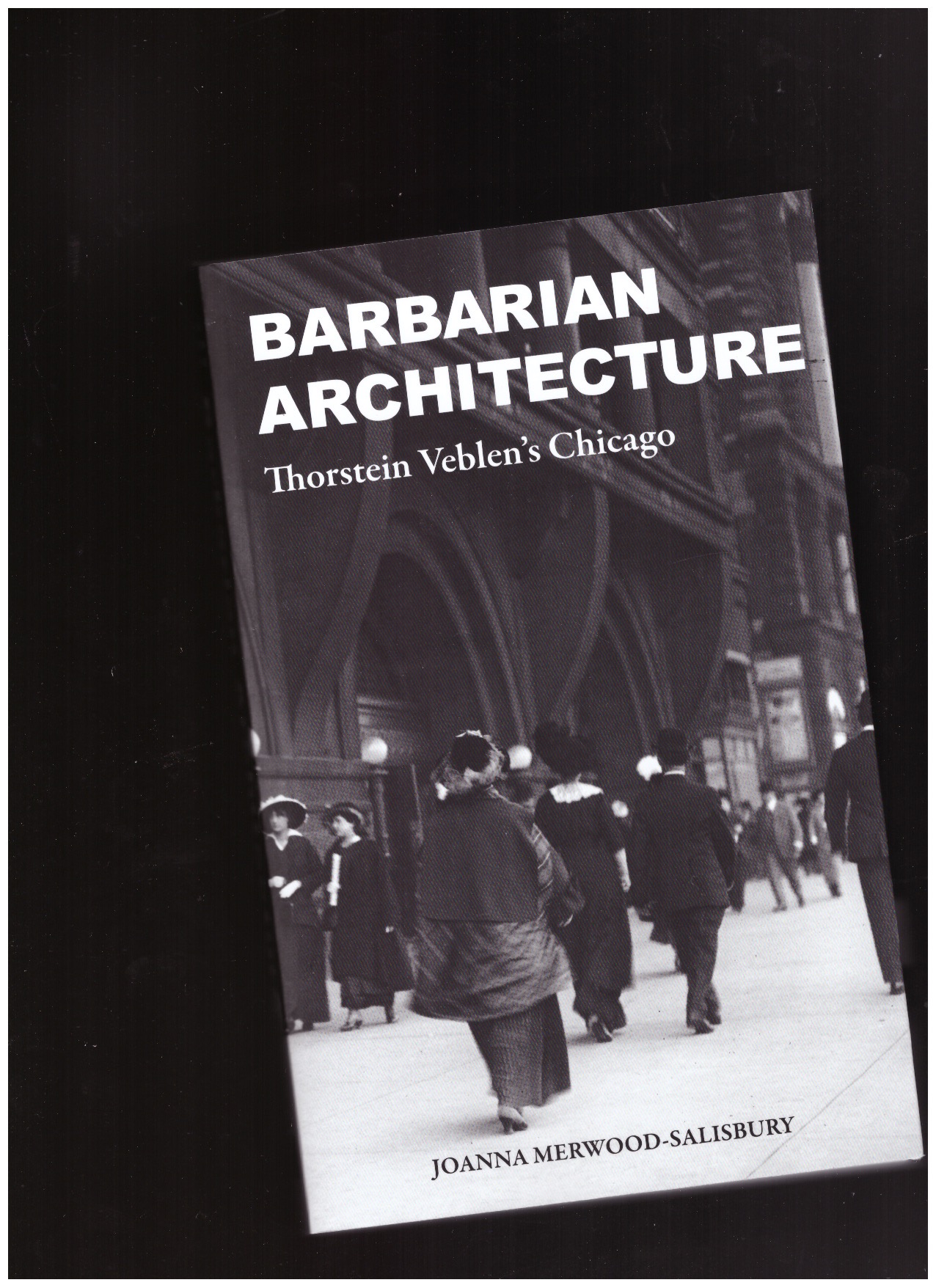MERWOOD-SALISBURY, Joanna
Barbarian Architecture
A richly visual architectural history and theory of modernity that reexamines Thorstein Veblen's classic text The Theory of the Leisure Class through the lens of Chicago in the 1890s.
An important critic of modern culture, American economist Thorstein Veblen is best known for the concept of “conspicuous consumption,” the ostentatious and wasteful display of goods in the service of social status—a term he coined in his 1899 classic The Theory of the Leisure Class. In the field of architectural history, scholars have employed Veblen in support of a wide range of arguments about modern architecture, but never has he attracted a comprehensive and critical treatment from the viewpoint of architectural history. In Barbarian Architecture, Joanna Merwood-Salisbury corrects this omission by reexamining Veblen's famous book as an original theory of modernity and situating it in a particular place and time—Chicago in the 1890s.
Merwood-Salisbury takes her title from Veblen's use of the term “barbarian,” which refers to his belief that Gilded Age American society was a last remnant of a barbarian state of greed and acquisitiveness. Taking an interdisciplinary approach that draws on biography, intellectual history, and historiography, she explores Veblen's position in relation to debates about industrial reform and aesthetics in Chicago during the period 1890–1906. Bolstered by a strong visual narrative made possible by several of Chicago's historic photographic collections, Barbarian Architecture makes a compelling and original argument for the influence of Veblen's home city on his work and ideas. [publisher's note]
Published by MIT Press, 2024
Architecture
